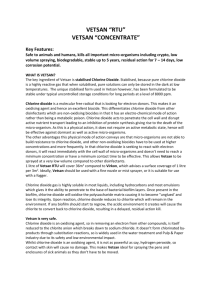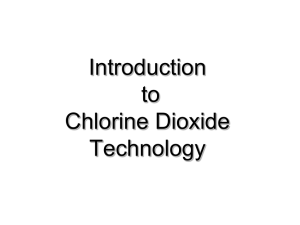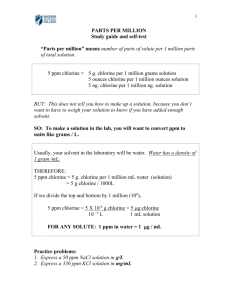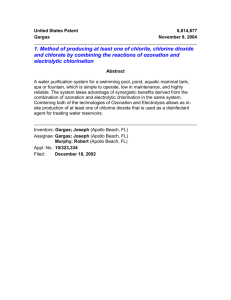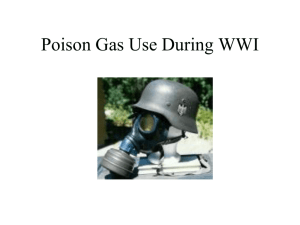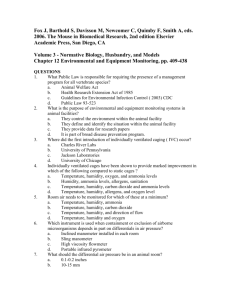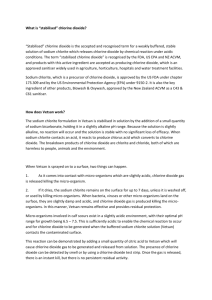Application of Chlorine Dioxide for Pesticide Residue Degradation
advertisement
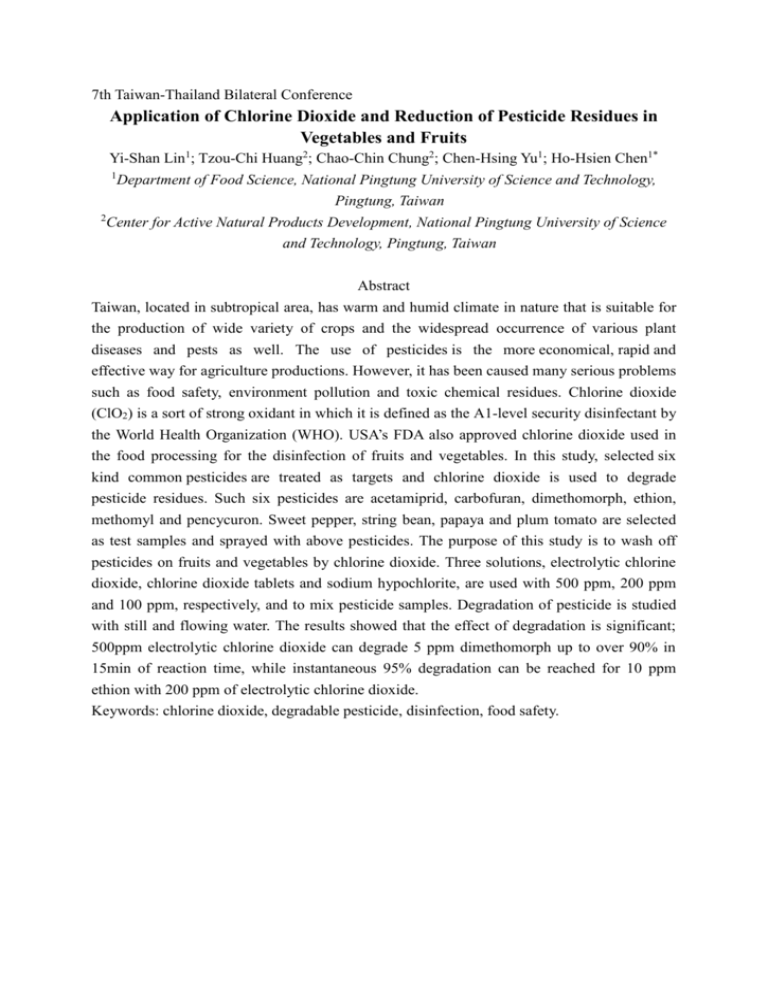
7th Taiwan-Thailand Bilateral Conference Application of Chlorine Dioxide and Reduction of Pesticide Residues in Vegetables and Fruits Yi-Shan Lin1; Tzou-Chi Huang2; Chao-Chin Chung2; Chen-Hsing Yu1; Ho-Hsien Chen1* 1 Department of Food Science, National Pingtung University of Science and Technology, Pingtung, Taiwan 2 Center for Active Natural Products Development, National Pingtung University of Science and Technology, Pingtung, Taiwan Abstract Taiwan, located in subtropical area, has warm and humid climate in nature that is suitable for the production of wide variety of crops and the widespread occurrence of various plant diseases and pests as well. The use of pesticides is the more economical, rapid and effective way for agriculture productions. However, it has been caused many serious problems such as food safety, environment pollution and toxic chemical residues. Chlorine dioxide (ClO2) is a sort of strong oxidant in which it is defined as the A1-level security disinfectant by the World Health Organization (WHO). USA’s FDA also approved chlorine dioxide used in the food processing for the disinfection of fruits and vegetables. In this study, selected six kind common pesticides are treated as targets and chlorine dioxide is used to degrade pesticide residues. Such six pesticides are acetamiprid, carbofuran, dimethomorph, ethion, methomyl and pencycuron. Sweet pepper, string bean, papaya and plum tomato are selected as test samples and sprayed with above pesticides. The purpose of this study is to wash off pesticides on fruits and vegetables by chlorine dioxide. Three solutions, electrolytic chlorine dioxide, chlorine dioxide tablets and sodium hypochlorite, are used with 500 ppm, 200 ppm and 100 ppm, respectively, and to mix pesticide samples. Degradation of pesticide is studied with still and flowing water. The results showed that the effect of degradation is significant; 500ppm electrolytic chlorine dioxide can degrade 5 ppm dimethomorph up to over 90% in 15min of reaction time, while instantaneous 95% degradation can be reached for 10 ppm ethion with 200 ppm of electrolytic chlorine dioxide. Keywords: chlorine dioxide, degradable pesticide, disinfection, food safety.


